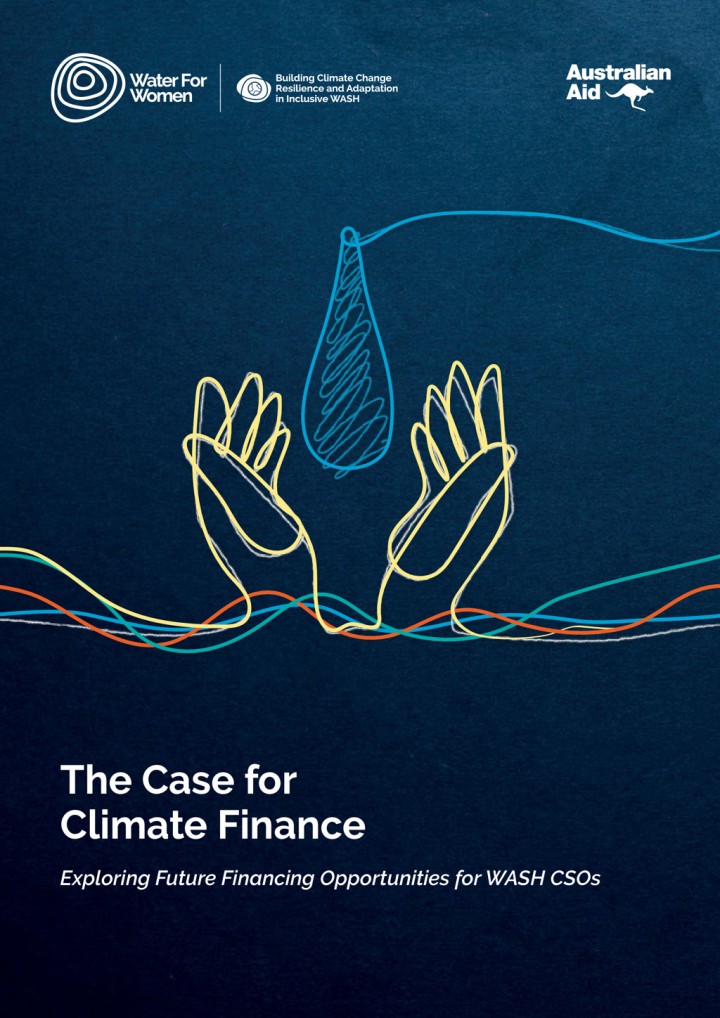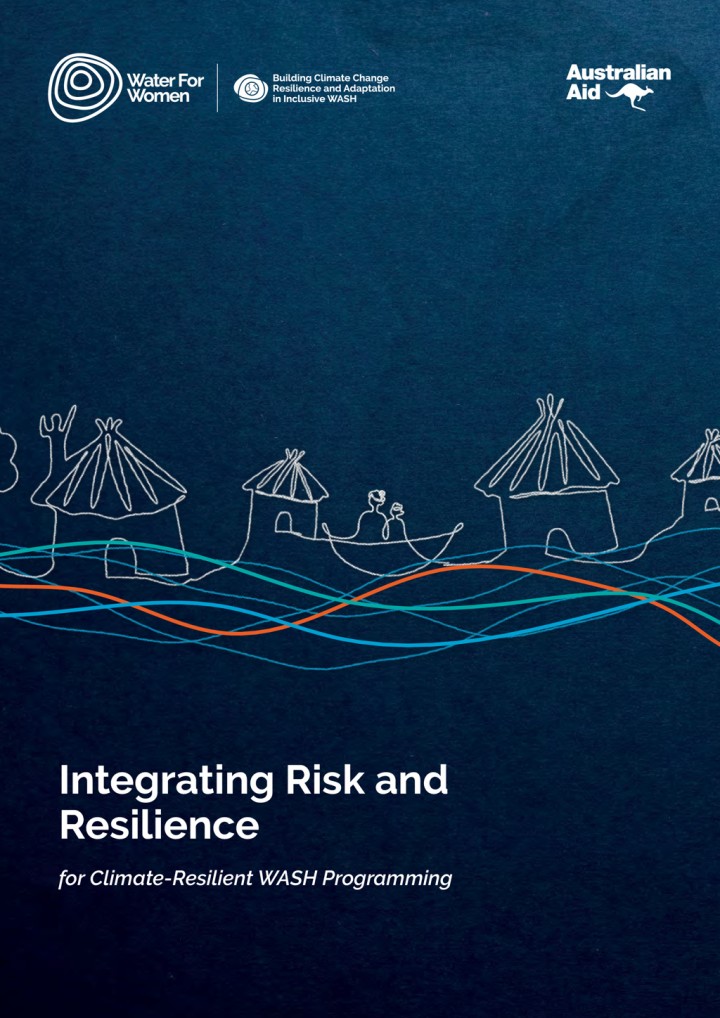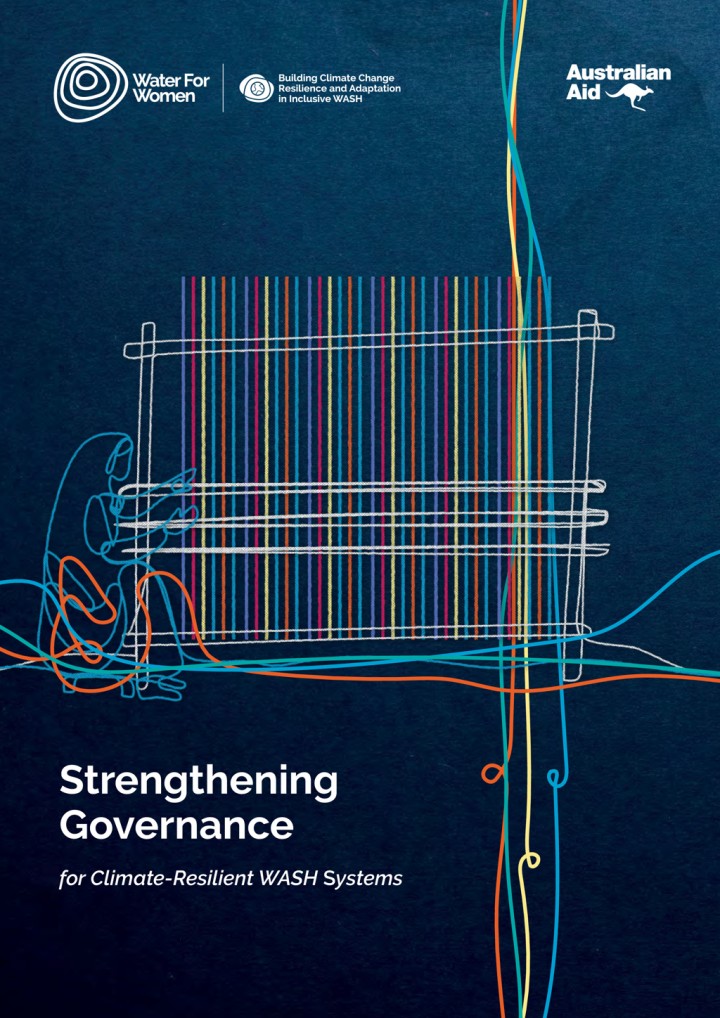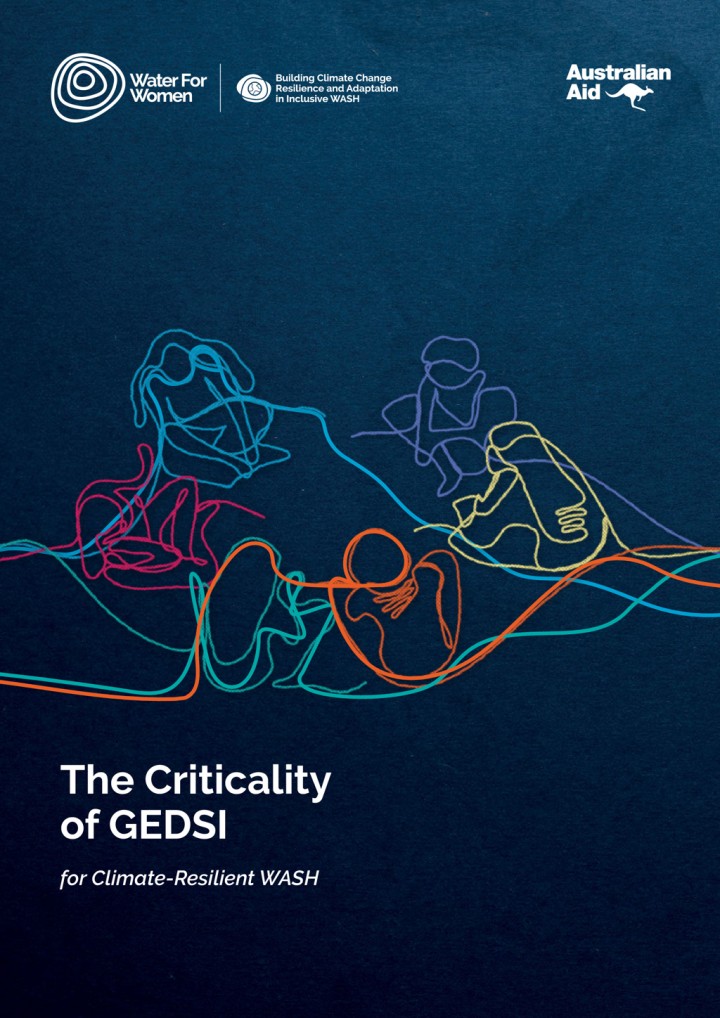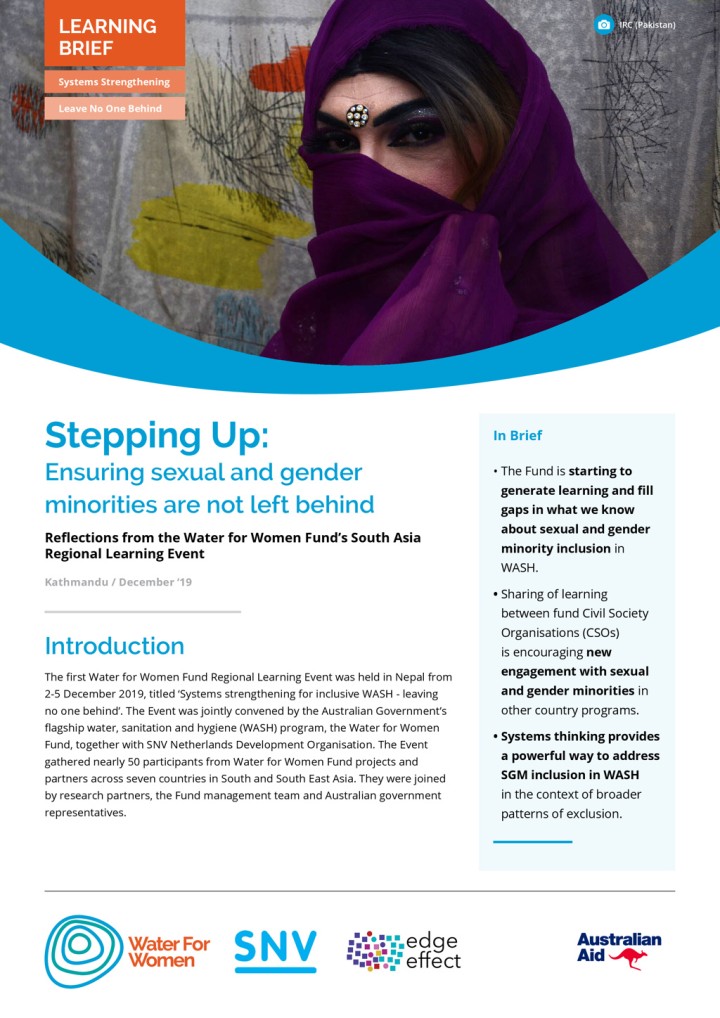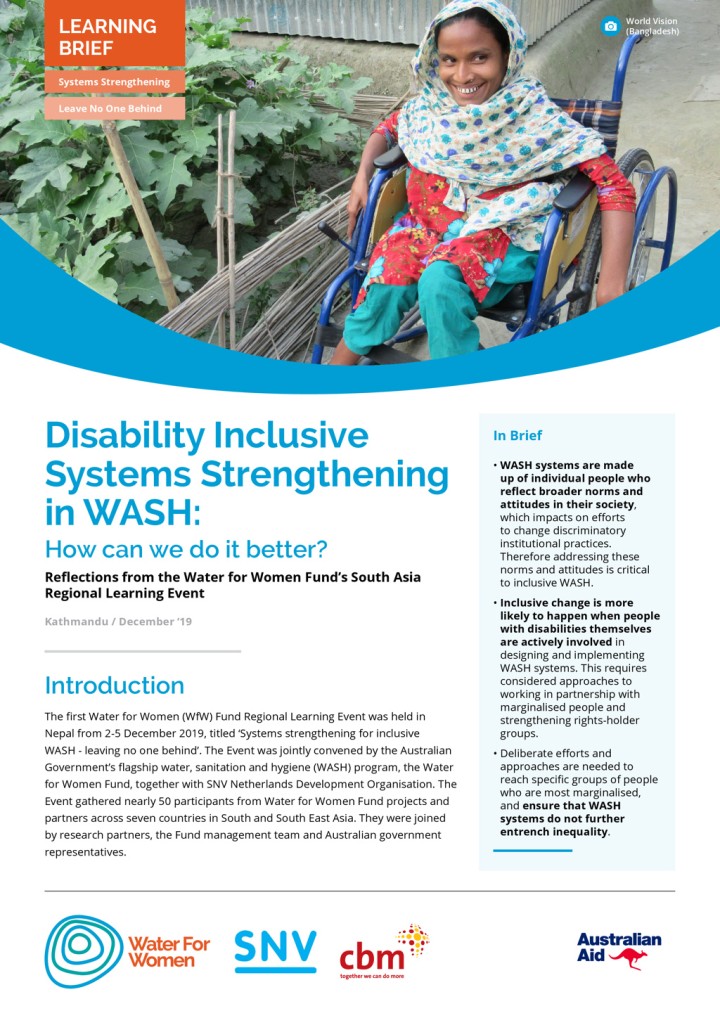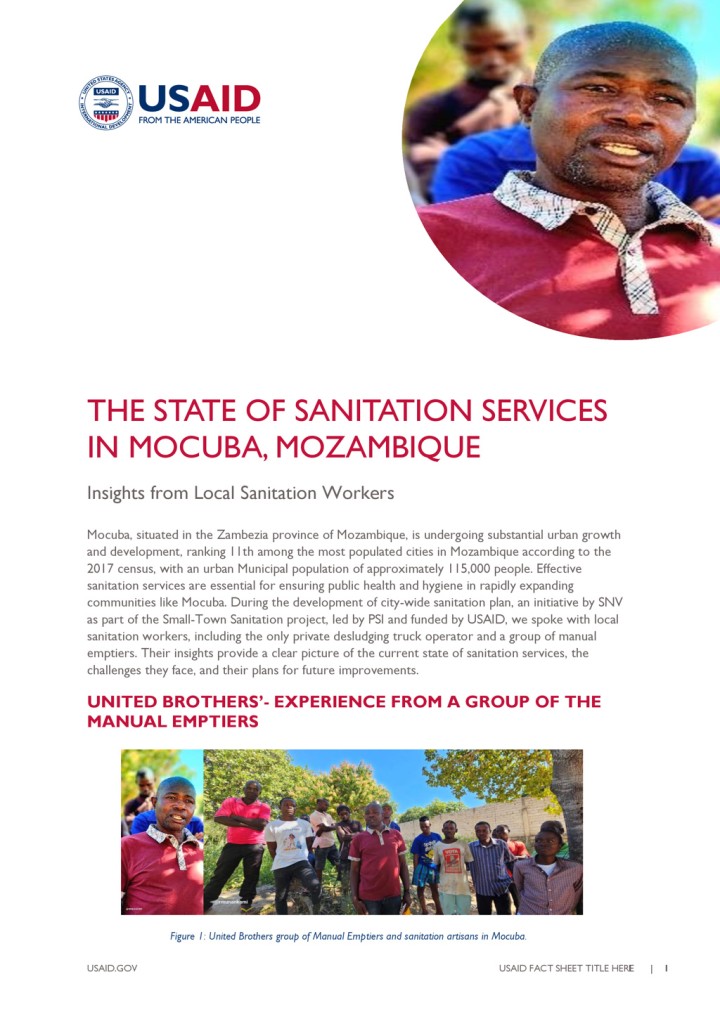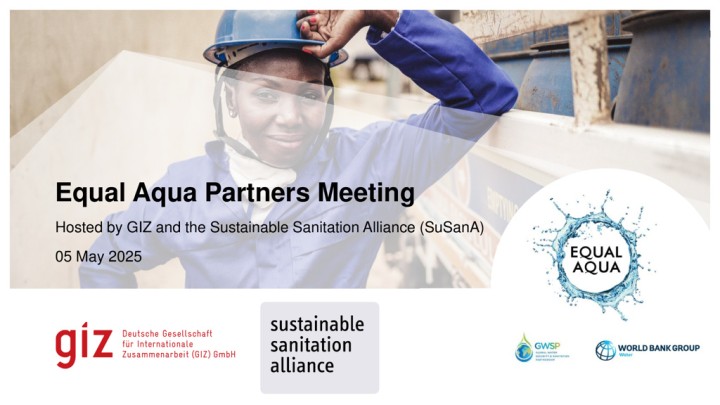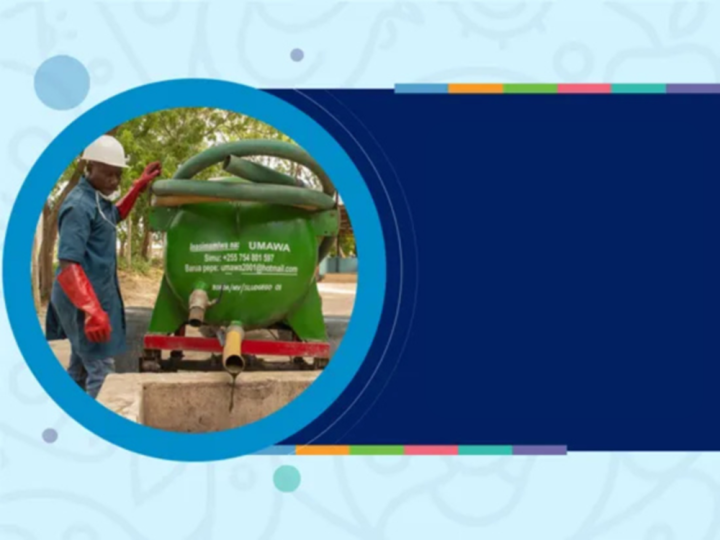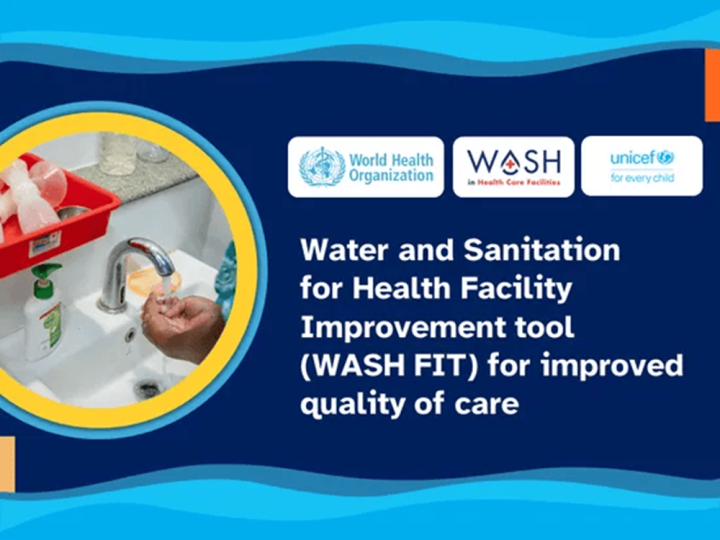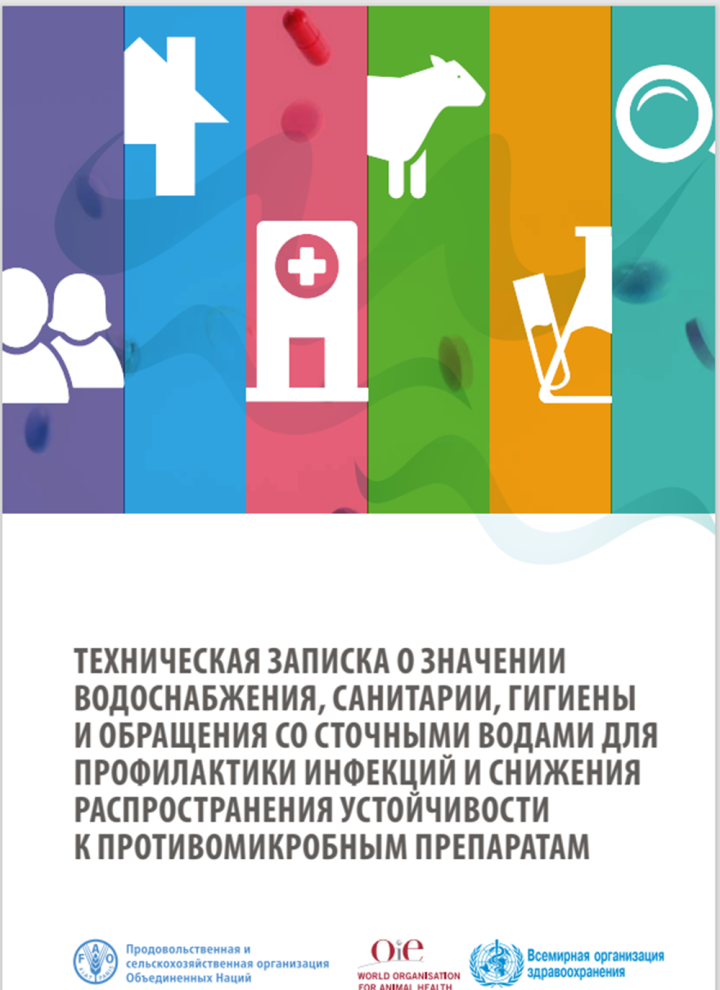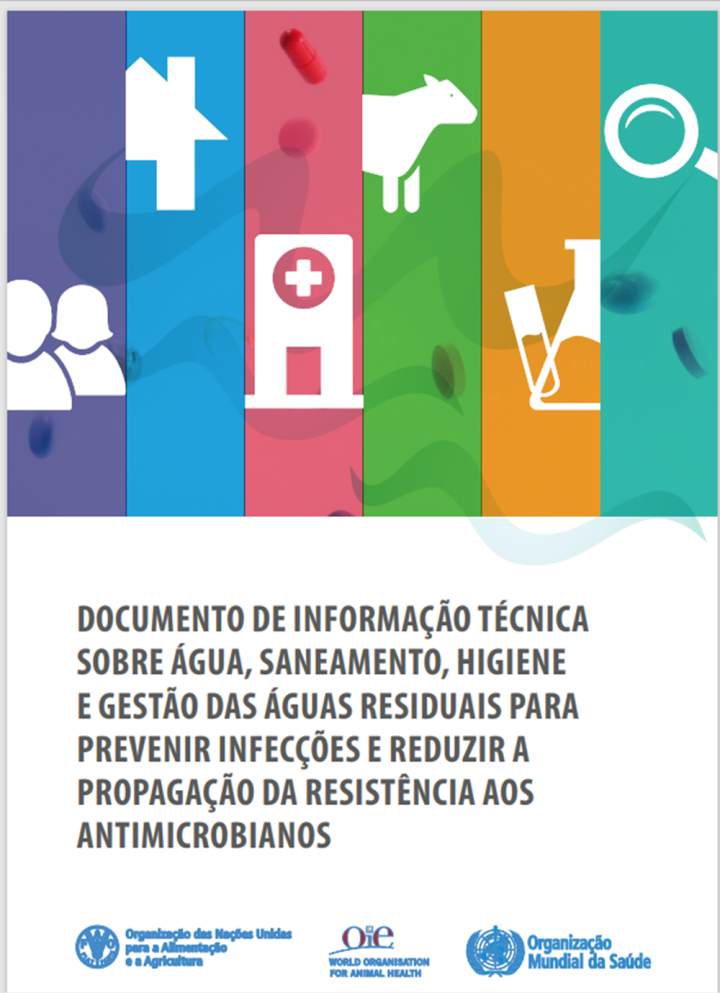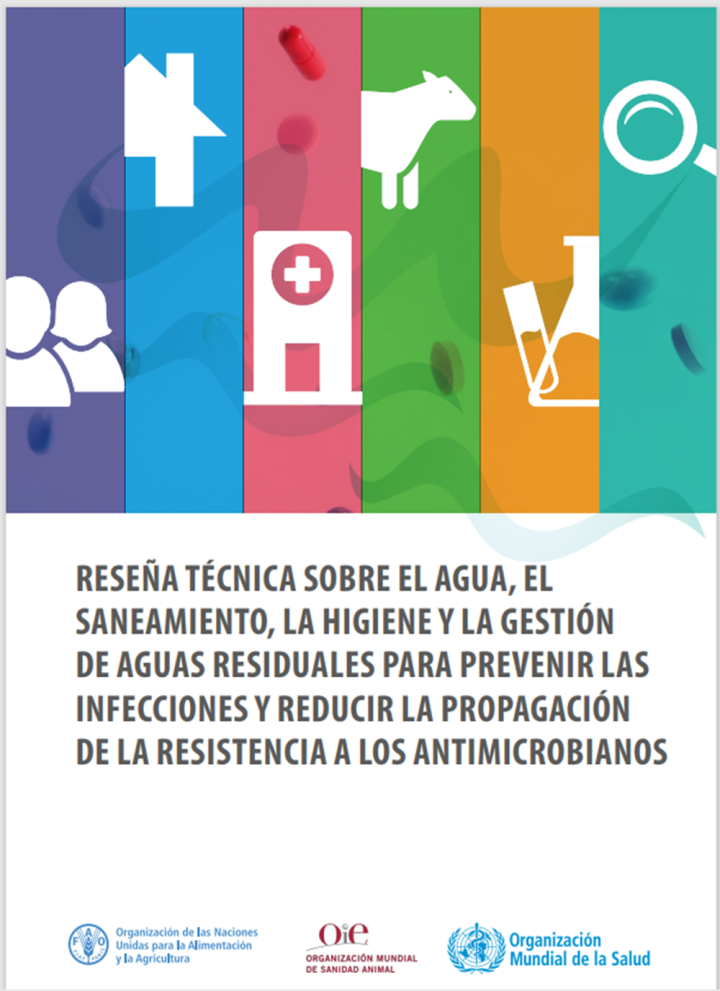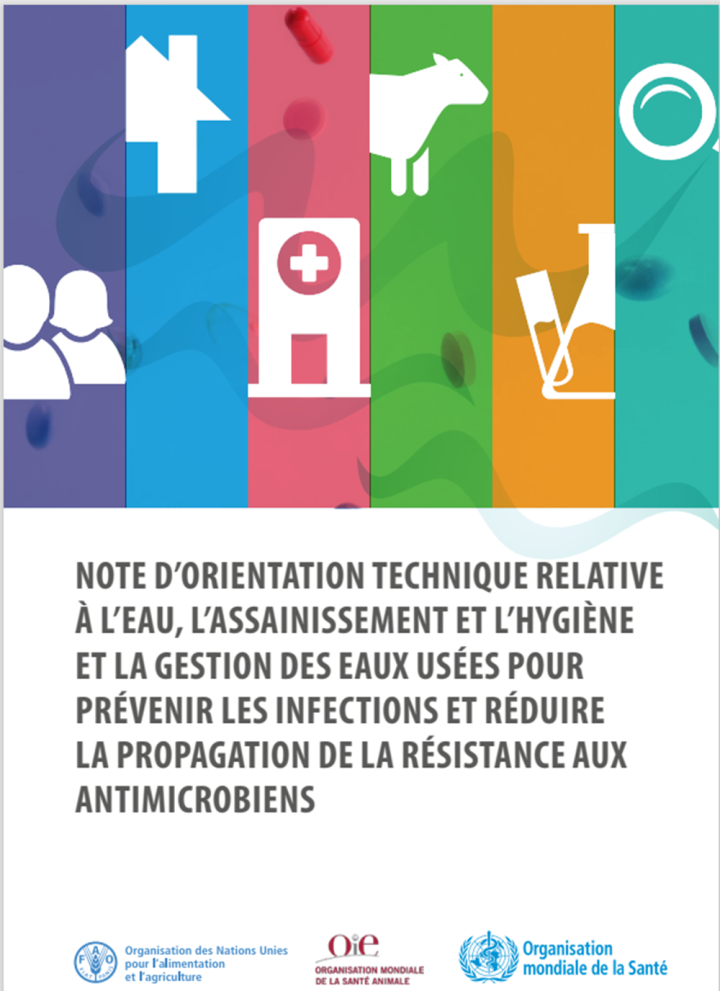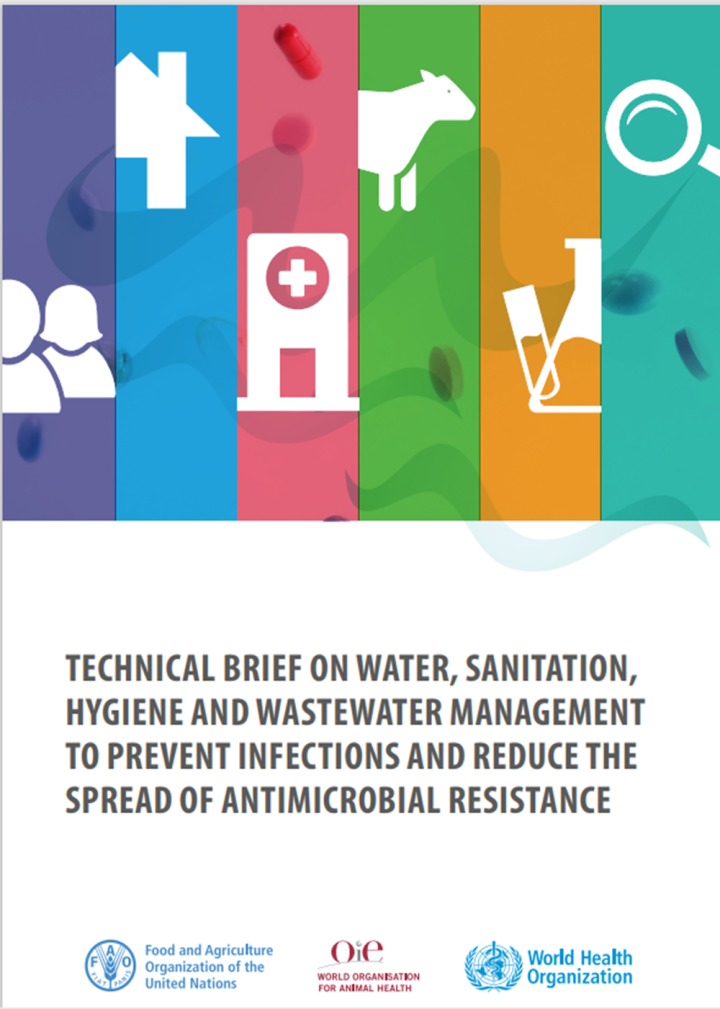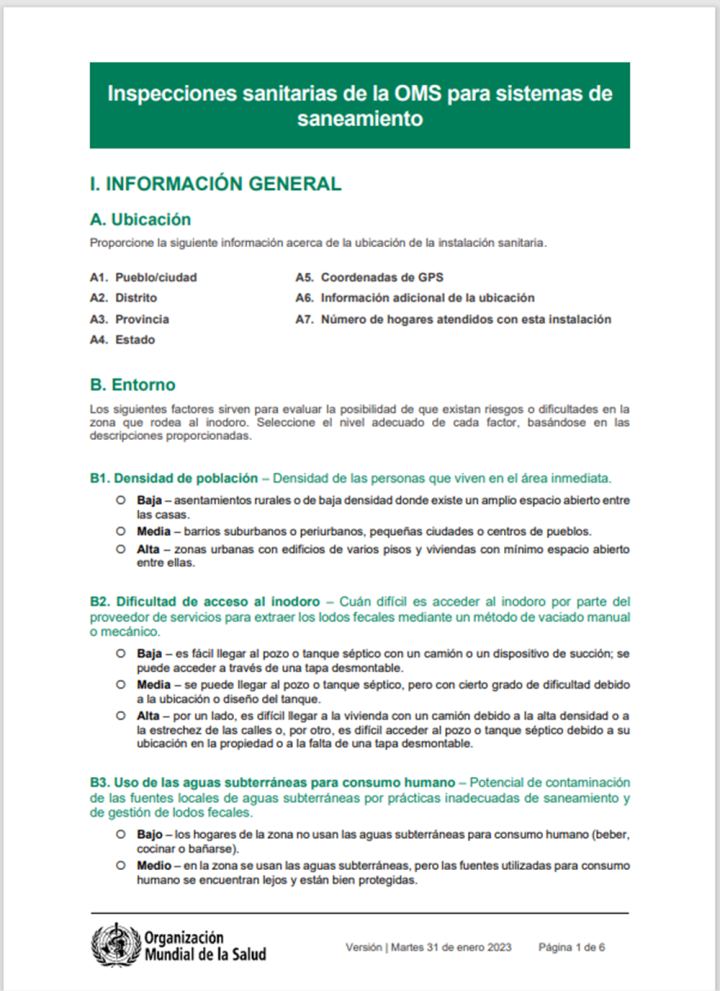Water for Women (2025) The Case for Climate Finance Exploring Future Financing Opportunities for WASH CSOs
This learning brief shares key findings and insight into climate finance, including the current funding landscape and its relevance to WASH actors. • The rise of climate finance marks a transformative shift in the global approach to climate change, with significant implications for a wide range of stakeholders • With global reductions in official development assistance, civil society organisations (CSOs) are under increasing pressure to find […]
Water for Women (2025) Integrating Risk and Resilience for Climate-Resilient WASH Programming
This brief shares key findings and insights from the first learning group (1) about integrating risk and resilience considerations for climate-resilient WASH programming. Definitions of climate risk and resilience and the application of the concepts are diverse and still evolving, including for the WASH sector. • ‘Climate risk’ is commonly understood as the potential for an adverse outcome influenced by the climate or a climate […]
Water for Women (2025) Strengthening Governance for Climate-Resilient WASH Systems
This brief shares key findings and insights from the second learning group (2) about strengthening governance for climate-resilient WASH systems. • WASH sector stakeholders are increasing efforts to strengthen the climate resilience of WASH development globally. • Integrating climate risk and resilience into WASH governance systems is central to these efforts, but is a new reform area in most settings. • Many frameworks for climate risk and resilience […]
Water for Women (2025) The Criticality of GEDSI for Climate-Resilient WASH
This learning brief shares key findings and insights from the third learning group (3) about the criticality of gender equality, disability and social inclusion (GEDSI) for climate-resilient inclusive WASH. • The most marginalised in communities are at the frontline of climate change hazards, uncertainty and impacts – they must be part of decision-making for context-appropriate and sustainable climate resilience solutions. • Transformative GEDSI considers the […]
Water for Women (2019) Learning Brief: 'Do No Harm' - Women's Empowerment in WASH
The empowerment of women and marginalised people is central to Water for Women, and recognised as key to leaving no one behind in achieving clean water and sanitation for all (SDG 6). But it can come at a cost, if we do not pro-actively address backlash and potential harms involved in challenging entrenched gender and social norms. This is what is known as having a […]
Water for Women Fund, SNV, Edge Effect and DFAT (2019) Stepping Up: Ensuring sexual and gender minorities are not left behind
The Water for Women gender and social inclusion (GESI) framework includes sexual and gender minority (SGM) inclusion, alongside inclusion of people with disabilities and more conventional approaches to gender inclusion. This Learning Brief aims to advance the Fund’s collective learning on SGM issues and inclusion by reflecting on the discussions throughout the Systems Strengthening for Inclusive WASH learning event held in December 2019 in Nepal
Water for Women (2019) Disability Inclusive Systems Strengthening in WASH: How can we do it better
The growing commitment to disability inclusive WASH within the sector has seen much progress in terms of accessible WASH infrastructure at all levels and support for people with disability to manage their WASH needs within their households and communities. The WASH sector is also increasingly focused on the broader enabling environment for WASH policy and practice, or on strengthening ‘WASH systems’. The linkage of these […]
Micaela Rodrigues (2024) Fact Sheet - The State of Sanitation Services in Mocuba, Mozambique
Mocuba, situated in the Zambezia province of Mozambique, is undergoing substantial urban growth and development, ranking 11th among the most populated cities in Mozambique according to the 2017 census, with an urban Municipal population of approximately 115,000 people. Effective sanitation services are essential for ensuring public health and hygiene in rapidly expanding communities like Mocuba. During the development of city-wide sanitation plan, an initiative by […]
GIZ and SuSanA (2025) Equal Aqua Partners Meeting
All Presentations. Hosted by GIZ and the Sustainable Sanitation Alliance (SuSanA).
World Health Organization (2024) WHO Academy: Antimicrobial Resistance in the environment: key concepts and interventions
Antimicrobial resistance (AMR) is one of the leading threats to human health. Tackling AMR will require a One Health response, including addressing AMR in the environment. The environmental dimensions of AMR are often neglected in national action plans and investments on AMR. In this course, you will learn why addressing AMR in the environment is essential and gain insights into how action can be taken […]
World Health Organization (2024) Water and Sanitation for Health Facility Improvement Tool (WASH FIT) for improved quality of care
The WHO/UNICEF Water and Sanitation for Health Facility Improvement Tool (WASH FIT) helps facilities to assess, manage and improve these critical services. This course covers the foundational concepts of WASH FIT, the methodology and examples of its application from a wide range of settings. It also includes six technical modules on water, sanitation, hand hygiene, health care waste, environmental cleaning and gender equality, disability and […]
World Health Organization (2020) гигиены и обращения со сточными водами для профилактики инфекций и снижения распространения устойчивости к противомикробным препаратам
Всемирная организация здравоохранения. Европейское региональное бюро, Продовольственная и сельскохозяйственная организация Объединенных Наций & Всемирная организация по охране здоровья животных. (2020). Техническая записка о значении водоснабжения, санитарии, гигиены и обращения со сточными водами для профилактики инфекций и снижения распространения устойчивости к противомикробным препаратам. Всемирная организация здравоохранения. Европейское региональное бюро.
World Health Organization (2020) Documento de informação técnica sobre água, saneamento, higiene e gestão das águas residuais para prevenir infecções e reduzir a propagação da resistência aos antimicrobianos
A melhoria da água, saneamento e higiene (WASH) e da gestão de águas residuais em todos os sectores é essencial para prevenir infecções e reduzir a propagação da resistência aos antimicrobianos (RAM), tal como identificado no Plano de Acção Mundial de Combate à RAM. No entanto, presentemente, os intervenientes e as medidas de melhoria da WASH e da gestão de águas residuais estão sub-representados nas plataformas […]
World Health Organization (2020) Reseña técnica sobre el agua, el saneamiento, la higiene y la gestión de aguas residuales para prevenir las infecciones y reducir la propagación de la resistencia a los antimicrobianos
"Las mejoras en materia de agua, saneamiento e higiene y en la gestión de las aguas residuales en todos los sectores son elementos fundamentales para prevenir las infecciones y reducir la propagación de la resistencia a los antimicrobianos, tal como se define en el Plan de acción mundial sobre la resistencia a los antimicrobianos. Sin embargo, en la actualidad, los aspectos del agua, el saneamiento, […]
World Health Organization (2020) Note d’orientation technique relative à l’eau, l’assainissement et l’hygiène et la gestion des eaux usées pour prévenir les infections et réduire la propagation de la résistance aux antimicrobiens
"L’amélioration dans le domaine de l’eau, de l’assainissement et de l’hygiène de l’eau (WASH) et de la gestion des eaux usées dans tous les secteurs est un élément essentiel pour prévenir les infections et réduire la propagation de la résistance aux antimicrobiens (AMR), comme l’indique le plan d’action mondial de lutte contre la résistance aux antimicrobiens. Or, à l’heure actuelle, les acteurs et les actions […]
World Health Organization (2020) Technical brief on water, sanitation, hygiene (WASH) and wastewater management to prevent infections and reduce the spread of antimicrobial resistance (AMR)
Improvements in water sanitation and hygiene (WASH) and wastewater management in all sectors are critical elements of preventing infections and reducing the spread of antimicrobial resistance (AMR) as identified in the Global Action Plan to combat AMR. Yet, at present, WASH and wastewater management actors and improvement actions are under-represented in AMR multi-stakeholder platforms and national action plans (NAPs). This WHO/FAO/OIE technical brief on WASH […]
World Health Organization (2024) Inspecciones sanitarias de la OMS para sistemas de saneamiento
Las inspecciones sanitarias son listas de verificación de observación breves y estandarizadas que las partes interesadas pueden adaptar y utilizar para evaluar los factores de riesgo en las instalaciones de saneamiento o cerca de ellas e identificar acciones apropiadas para salvaguardar la salud pública.
World Health Organization (2024) Inspections sanitaires de l'OMS pour les systèmes d'assainissement
Les inspections sanitaires sont de courtes checklists d'observation standardisées qui peuvent être adaptées et utilisées par les intervenants pour évaluer les facteurs de risques dans les installations d'assainissement ou à proximité et identifier les actions appropriées pour sauvegarder la santé publique.
World Health Organization (2024) Sanitary Inspection Forms
Sanitary inspections for sanitation systems or sanitation inspections are short, standardized observation checklists that can be used to assess risk factors at or near sanitation facilities and identify appropriate actions to safeguard public health. Sanitary inspections support the implementation of the WHO Guidelines on sanitation and health, in particular Chapter 3 on Safe sanitation systems and the Sanitation system fact sheets. Sanitary inspections may be […]
WHO & UNICEF (2024) Steps to achieve universal access to safely managed sanitation
This document supports country-level implementation of sanitation initiatives aimed at promoting access to climate-resilient safely managed sanitation services. It serves as a resource for WHO and UNICEF country offices to work effectively with national, sub-national, and local counterparts in implementing the WHO Guidelines on Sanitation and Health and UNICEF Game Plan to Reach Safely Managed Sanitation (2022–2030). The implementation steps outlined here promote stronger […]
